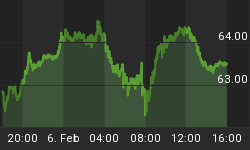The original parameters used to construct the European Monetary Union were set up by the Maastricht Treaty of 1992. The Treaty on European Union contained strict limits on debt and deficits. In particular, deficits were not to exceed 3% of GDP and gross public debt was to be south of 60% of total output. Today, not even Germany can claim to have held true to those strictures. In fact, all but a few countries in the EU have egregiously violated the Treaty’s mandates.
However, we are now being told that a new Maastricht Treaty—let’s call it Maastricht Light—is to be adopted by those permanently-profligate Western European Nations. The European Summit meeting held last week proposed a blueprint for member nations to curb deficits and also to bolster the bailout fund. In other words, this time is different and now they really mean it!
But there are some significant problems with this latest solution. For starters, how will violators be sanctioned and what enforcement mechanisms can there be? For example, if the new plan is to throw out transgressors of this new treaty then what is the excuse for not starting now? More importantly, how can a country already having a debt to GDP ratio north of 100% pare down their debt to a viable level? In order to become a member in good standing in this new frugal club of nations; Portugal, Italy, Ireland, Greece Spain and perhaps even France and Germany, must first default on a significant portion of their debt.
But the act of defaulting in trillions of Euros worth of debt will lead to a depression in the Eurozone, if not the entire globe. Therefore, I expect the new name for this agreement coming from the European Summit meeting should be called Maastricht Light. But this new treaty will be much shorter in duration and profoundly less effective than the first…
In the interim, global markets continue to be held hostage by the ECB and its (UN)/willingness to massively monetize Eurozone debt. The covariance of most assets is currently extremely high because of debt levels that are also near their apogee. Last week we received further confirmation that the economy just isn’t deleveraging.
The Flow of Funds report, put out by the Federal Reserve, showed that Total Non-financial debt is at 250% of GDP.
That’s the same level it was in Q3 2010 and also in 2009. Due to the precarious level of debt in the developed world, the direction of the dollar continues to dictate the direction of markets. Whenever the ECB communicates clues to the markets that it may buy-up insolvent EU (17) debt, the dollar drops, as most asset prices rise. And whenever ECB President Mario Draghi steps away from that eventuality, the dollar rises and global asset prices fall.
It appears, from his statement released last Thursday that Mr. Draghi is currently a bit reticent to bring back the good old days of Weimar Germany. But sadly, he is a politician like all central bankers and sooner or later will succumb to the pressure engendered by a depression. Much like our own Treasury Secretary Hank Paulson acquiesced to borrowing and printing trillions of dollars after facing the collapse of the entire U.S. banking system, which was brought about by the imminent insolvency of AIG.
Investors should be aware that gold and other commodities will experience extreme volatility in 2012--even more than what was witnessed in 2011. However, the timing for the next move to new highs will hang on the ECB’s deployment of its ultimate plan of massive monetization of unsterilized European debt.















